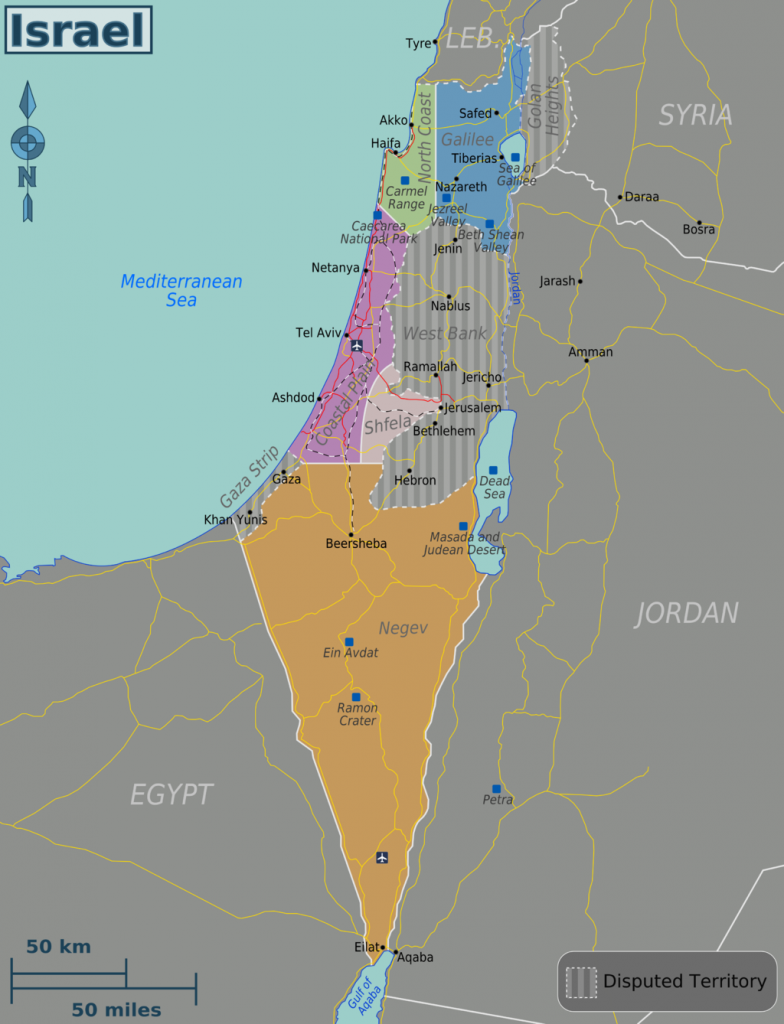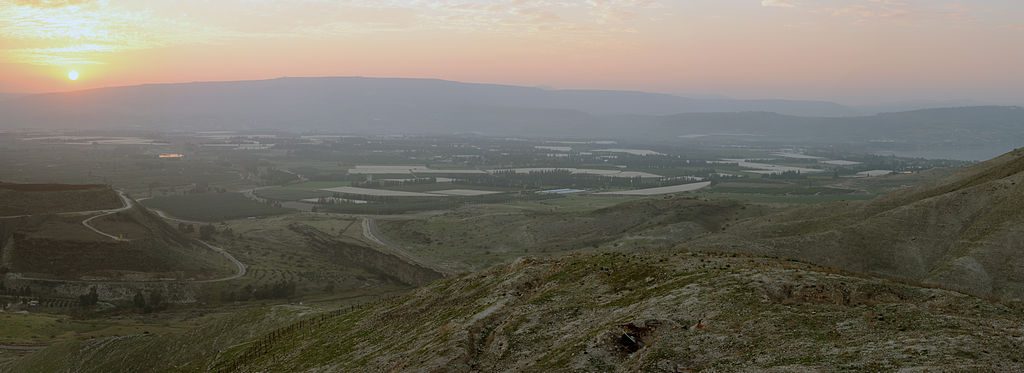Netanyahu, feeling the increasing unpopularity of his alliance with the religious parties, dangles the carrot of sovereignty extension only possible in the Trump era

Last week, Israeli PM Benjamin Netanyahu informed the Israeli public that he would be giving a special announcement to the nation at 17:00 hours. An appeal to the Supreme Court was submitted on the ground that such an announcement would be nothing but electioneering and campaigning via the use of Israeli private and public media channels, but it was rejected, so Netanyahu could and did have his say.
Having watched his performance, it became immediately clear to me that his announcement was indeed electioneering. Later, the Elections Commission agreed, fining the Likud party for illegal electioneering. Netanyahu announced that he is in favor of extending full Israeli jurisdiction to the Israeli cities, towns, and villages in Judea and Samaria in general and then focused his presentation on a specific geographic area known as the Jordan River Valley.
This area is part of the Great African Rift and extends from the southern tip of the Sea of Galilee in the north to the northern end of the Dead Sea in the south. In the past, the River Jordan flowed through this valley, bringing fresh water to the very salty Dead Sea, but ever since the construction of the National Water Carrier in the late 1950’s, the waters of the Jordan are diverted just south of the Sea of Galilee and its ancient riverbed is arid through much of the year.

Copyright: Globe-trotter [CC BY-SA 4.0 (https://creativecommons.org/licenses/by-sa/4.0)]
From the time that the Israelites conquered Canaan crossing the Jordan from east to west sometime in the middle of the second millennium BC, the naturally-formed canyon with the river running through it formed an easily defined and defensible boundary for the Land of Israel. Today, much of the Jordan River Valley is part of Samaria, or the so-called West Bank and thus not a part of Israel proper outside of a small piece directly south of the Sea of Galilee.
The Jordan Valley does not have a dense Arab population because of its oppressive summer heat, malaria-carrying mosquitoes (eradicated by Jewish repatriates by mid-20th century) and the difficulty in defending low-lying areas against bandits and other enemies. Due to these factors, ancient towns and villages, most dating back to Biblical times and built by the people of Israel though now populated by Arabs, are located along the mountain range that separates the Jordan Valley, much of it lying below sea level and the Mediterranean coast.

Copyright: Staselnik [CC BY-SA 3.0 (https://creativecommons.org/licenses/by-sa/3.0)]
Jewish repatriates from the earliest days of the Zionist movement in the late 19th and early 20th centuries and later after the bulk of the valley was liberated from Jordan during the 1967 Six Day war, managed to drain the land and eradicate malaria as well as develop sustainable and profitable agriculture. Due to this effort, the Jordan Valley today is home to many Jewish population centers.
It has long been the consensus in Israel that the Jordan Valley must remain in Israeli hands in any scenario of a final settlement between the Israelis and the Palestinians, but no action has been taken so far to guarantee that outcome. Because of that and because of the peace treaties with Egypt and Jordan, the Jordan River Valley together with the Golan Heights form the only two remaining Israeli borders that have not been recognized by the world community. The Golan Heights have been officially recognized as Israeli sovereign territory by the Knesset in the 1980’s and by the US just recently, so they can be removed from the discussion, leaving the Jordan Valley as the only truly undefined Israeli border.
It was this reality that PM Netanyahu promised to address should he be reelected to the lead the country in the general election this coming Tuesday. Netanyahu promised that immediately upon receiving a renewed mandate from the Israeli people, he will move to extend Israeli sovereignty over the Jordan River Valley and not just a narrow “security strip” as has been suggested in several “peace” plans, but a wide swath of territory including all of the Israeli towns and villages. To illustrate his plan, Netanyahu presented a map on an easel. The whole production felt rather amateurish and hastily put together, but there it was.
Copyright: Created by Nice4What. Adapted from map created by NordNordWest. [CC BY-SA 3.0 (https://creativecommons.org/licenses/by-sa/3.0)]
In the several days that have passed since the announcement, only one poll, likely an outlier, showed any kind of upward movement for the Likud, but that movement came at the expense of the Jewish Power party, which was pushed under the four seat minimum and disappeared from the Knesset. The general picture arising from all the polling has remained rather amazingly stable: the Likud, right wing, and haredi (ultra-Orthodox) bloc is stuck with 54 to 58 seats, both insufficient for a coalition government, while the Blue and White, left, and Arab bloc hovers around 51 to 53 seats. This leaves the secularist Israel Beitenu party led by Avigdor Lieberman with its nine or so seats in the role of kingmakers.
Should this picture hold, Wednesday morning will be a tough one for Israel and especially the reigning PM Netanyahu and the religious parties. Such an outcome, considering that it would be the exact outcome for the purpose of which Mr. Lieberman scuttled the results of the elections in April of this year, is unlikely to result in Mr. Netanyahu remaining in power at the head of his center-right-right-religious coalition. What is more likely, is a sort of a secularist “national unity” government, led in rotation by Blue and White leader Mr. Gantz and one of the Likud leaders who have been waiting in the wings to replace Netanyahu when the time is right. The first to serve in this rotation agreement would depend of whether the Likud or Blue and White garners the larger number of seats, something that the polling so far has failed to predict.
The question of who serves the first two years as PM and who serves the two years thereafter assuming (and this is not a good assumption) that an early election will not be called, fails in importance compared to the fact that this kind of government will be a truly revolutionary one in Israel’s history and a major rebuke by the two-third majority of non-observant Jewish Israelis of the trend towards the creeping halachic (Jewish religious law) influence on the public square and public life in Israel.
Netanyahu’s last minute plea was an attempt to convince non-observant Israelis that the opportunity to shop for bargains at the liquidation outlet mall that is Trump’s Middle East policy, the opportunity to extend, with American blessing or at least tacit acquiescence parts of Judea and Samaria starting with the Jordan Valley outweighs the revulsion and the fear that they feel towards the increased influence and power of organized religion over their day to day lives. Whether this plea was successful will be known by the middle of next week, but I suspect it won’t be. Israelis realize that the boundaries with the various Arab nations and the relations with the Palestinians have known their peaks and valleys and will doubtlessly know many more, but the crucial balance between the Jewish and the democratic nature of our modern homeland must be restored to forestall a collapse of the Israeli society, making all the other questions rather moot.
Some elections are about security. Others are about prosperity. For Israel, having made incredible progress in both, this election is about the soul of the Zionist movement and its ultimate goal: Israel as a free and democratic society in which the Jewish religion, Judaism, has a naturally preferred, but limited status, or Israel as a society in which Jewish religious law continues its creeping takeover of the public square and of iconic institutions such as the IDF. Of these two roads, the latter one leads to no other outcome but the destruction of Israel, indeed the fall of the Third Temple. Most Israelis feel it in their bones. My prediction is that the Likud religious alliance will not survive and neither will PM Netanyahu’s term at the helm of the Jewish State.
- Snowden Marries Pole-Dancing Girlfriend In Russia
- Nukes The Latest Distraction As Erdogan Clings To Power


